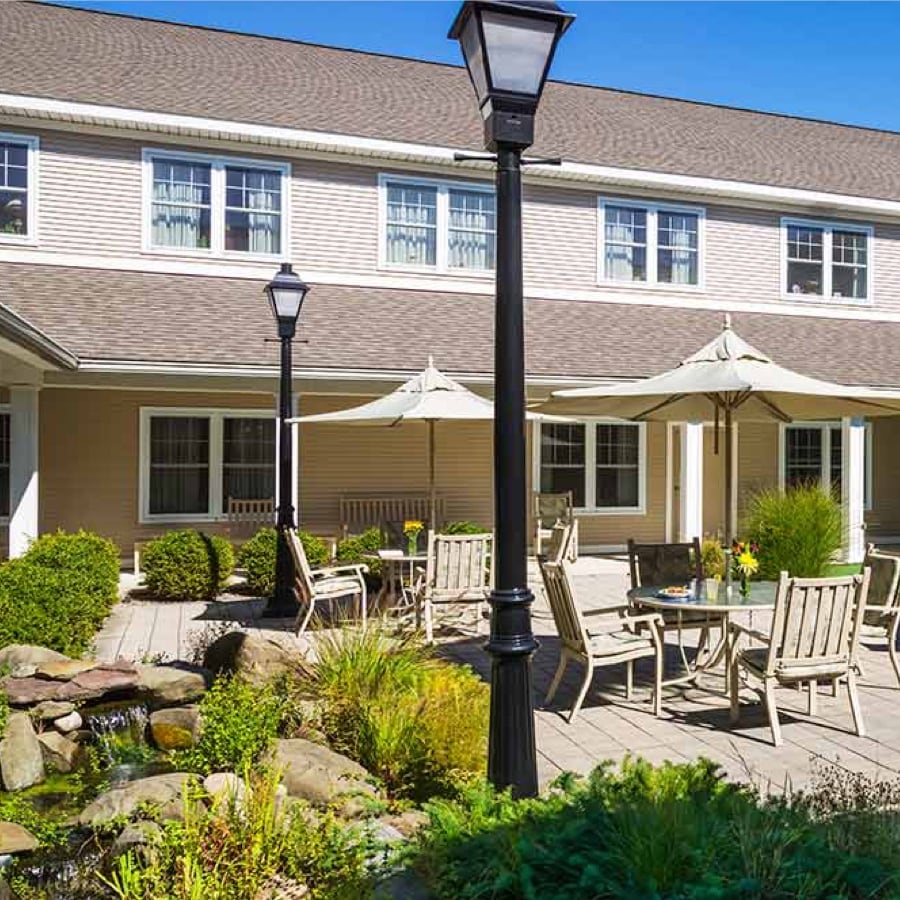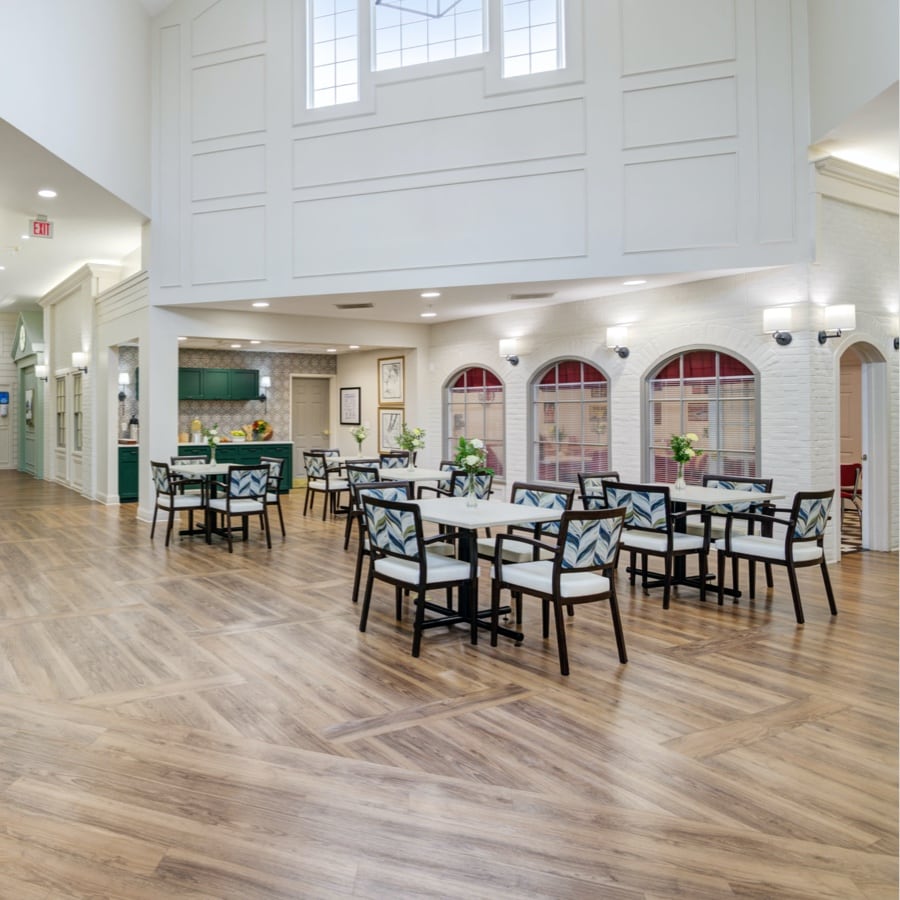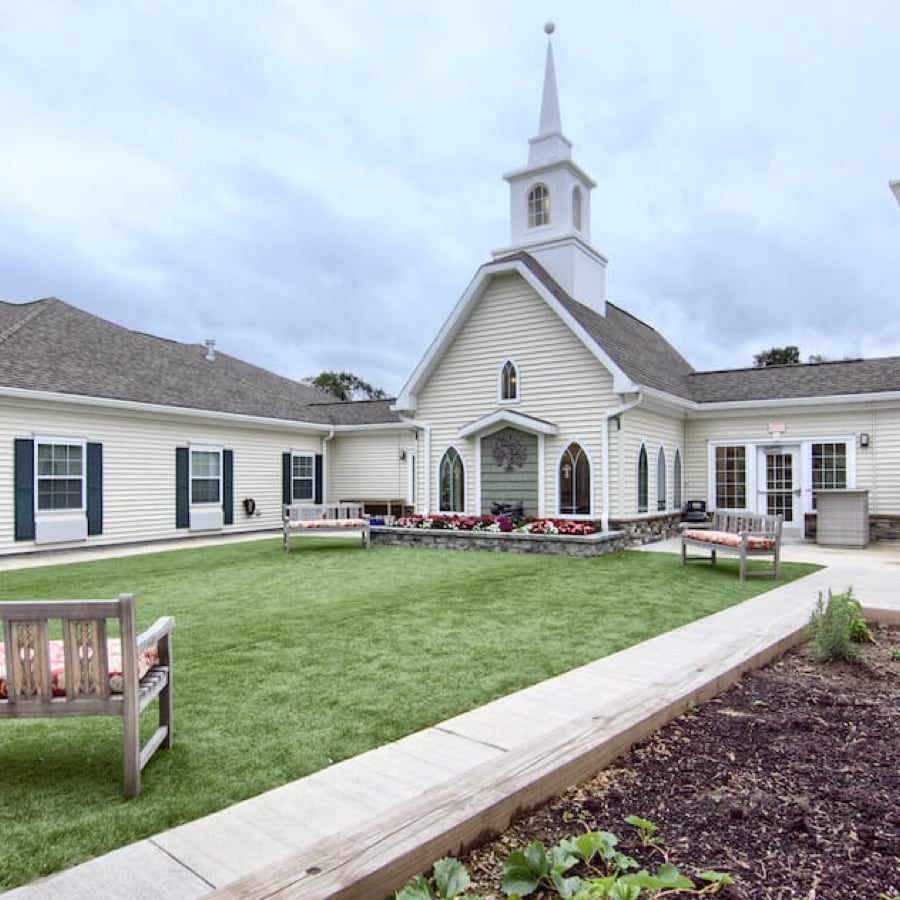Good food, proper nutrition, and a comfortable and satisfying mealtime experience are things every senior should have the opportunity to enjoy. And today’s modern senior living communities recognize that dining is key for health, vitality, and quality of life in every level of care, including memory care.
Poor nutrition may increase behavioral symptoms and cause weight loss for a person with Alzheimer’s disease or dementia. Good nutrition not only can boost physical health, it also can be a welcome comfort and evoke fond memories. Memory care The Peregrine Way™ includes creating a dining experience that both reassures and stimulates.
Dining in memory care: keys to making it a pleasure.
Culinary staff combine healthy food with delicious meals.
When planning meals for seniors, it’s important to consider altered taste, difficulty chewing and/or swallowing, medication side effects, and nutrient requirements. Memory care culinary staff are experts in taking all this into consideration and designing a menu that is both appetizing and appropriate. In addition, chefs understand appetites can change without warning—what was a favorite food is now something that a resident may no longer have an interest in. The key is to respond with patience and flexibility.
Personalized service keeps residents on track.
In a memory care setting, caregivers sit with residents while they eat, offering assistance and also observing if needs are changing. They are able to see how much a resident is eating, what they are eating, and how they are interacting with their surroundings. These caregivers can then recommend any new approaches to food and ambiance. Such personal attention is vital to dining in memory care as a person’s appetite can change as they progress through the stages of dementia.
Predictable experience helps residents feel in control and connected.
Having regular mealtimes and the same place to eat is important for individuals with dementia or Alzheimer’s. Acknowledging the need for routine as well as embracing the significance of long-term memories and the effect they can have on your loved one is not only helpful for successful dining; it is a key aspect of The Peregrine Way™.
Stimulating the appetite in multiple ways.
According to The Alzheimer’s Association, people with dementia or Alzheimer’s do not need a special diet, they just need a well-balanced, nutritious diet. At Peregrine communities, dieticians provide choices including finger foods, balanced meals with delicious main courses, attractive salads, an array of vegetables, enticing deserts and healthy fruit snacks. Since residents may be experiencing a loss of smell and taste, the care staff stimulate appetites with presentation, colors, smells and portion size. Dining team members strive to present menus featuring familiar dishes as a recognizable aroma or the sight of a favorite dish can have a soothing effect.
Involving the family in choices.
Knowing a person’s dietary preferences is important for dining in memory care. If someone really hates spinach, then there’s no reason to put that on their plate. Conversely, if having a roast with gravy on Sundays is a cherished family tradition, letting the memory care staff know how much this means to your loved one can result in an especially pleasant experience.
Creating a pleasant atmosphere.
Dining in memory care calls for a calm, well-lit dining room that is easy to navigate and is filled with lots of natural light. Tables are usually set for a small number of residents, such as four to six, so that each person can feel part of a close group without feeling overwhelmed. Often, a familiar item such as a basket of bread or salad bowl is placed in the middle. At Peregrine Senior Living, we realize that even just sitting at a table with others can feel familiar and provide a sense of belonging and comfort.
Serving finger foods and other creative ideas.
Smaller, bite-sized foods such as fish sticks, orange sections, chicken nuggets, or pieces of raw vegetables are easy to pick up. This also allows each person to participate more in eating. Memory care servers know how to assist each resident and help them to prevent choking.
The goal of Peregrine Senior Living’s unique approach to memory care is to help improve the quality of life for residents and their families through unsurpassed care.Everything we do is designed to help our residents thrive. We’re here to help you. Download our free guide: Just the Facts: Memory Care for more information. Learn more about The Peregrine Way™. Contact us today.











